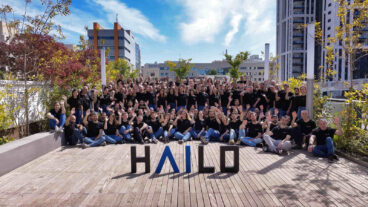Using GPS technology, Israeli scientists can track our activities in space and time, spurring a seemingly infinite number of potential applications from medicine to crowd control.

Where are you right now? Are you walking, riding the train, or speeding down the highway on your way to work? How you move around your city and community reveals a lot about you: Based on GPS (Global Positioning System) readings that pinpoint your coordinates, doctors can interpret the health of your body and evaluate surgery, mall or theme park operators can better manage crowds, and urban planners can design cities for people around the things they really like to do.
Using GPS data, Hebrew University (HU) scientists have developed a new processing algorithm and database that can help application developers to create high-tech devices and tools to shed light on the way people move in their communities.
Dr. Noam Shoval, head of the Geography Department at HU, and his doctoral student Michal Isaacson, who won first prize in the Kaye Innovation Awards at HU earlier this month for her work in this field, have already published a scientific paper in the journal Spine, about how their tool – based on GPS signals – can help physicians to estimate the health of a patient’s back before and after surgery.
The research duo has built a system from which endless applications and tools can be created. Consider iPhone apps developers, who are expected to have a field day with the system. The HU project, currently untitled, provides data on the spot that can be analyzed in real-time or compiled in databases for retroactive analysis.
Scientists use an analysis engine to interpret the time and space variables of people carrying a small GPS unit. They examine the volumes of activity that reveal where, and possibly how, those people spend their time.
Not just about tracking
“There is a data deluge of points and locations of people,” Shoval tells ISRAEL21c. “We can collect information on the same person walking somewhere for let’s say a month. We wanted to make sense and value from the data – the challenges are immense.”
The research project, now licensed to a medical company in the US, with talks in progress with a second high-tech company, enables Shoval to extract an analysis of an individual’s or group’s space and time activities. In medicine, in tourism, in theme parks, in shopping areas: “It’s not just about tracking,” states Shoval. “We can link it to guest satisfaction services, which gives value to market research departments, to planning departments in cities, and medical departments.”
Currently, the researchers have a number of pilot studies underway to track the performance of their engine. One is ongoing in the old city of Acre, in the north of Israel, to help the city planners understand carrying capacity. In Hong Kong there’s a study that’s analyzing the importance of a hotel’s location for the tourist industry. Yet another is evaluating crowd activity and flow at the PortAventura theme park near Barcelona.
“We can tell how people are behaving according to different attractions,” Shoval says. “We can see real-time how much people are spending and where and what their buying sequence is,” he explains. For instance, if people watch a show at a theme park, his tool could track them to see what percentage goes to buy a T-shirt or a CD following the show.
The scientists say that the engine is still in the testing phase, but they are keen to take on projects through Yissum, HU’s technology transfer company. While he has one hand in the business side, Shoval is definitely not planning to scrimp on the science: “I am a scientist and a professor of geography – I am not a startup company, and my purpose with this project is not to create market shares,” he tells ISRAEL21c in no uncertain terms. However, he admits that he’s aware that the market for his tool is potentially huge – especially considering the astronomical growth of iPhone applications over the past year or so.
Diagnostics for hearts and limbs
So far, the US company Location Based Intelligence has licensed the engine as an objective means to help with the evaluation of patients with spinal cord injuries. Questionnaires and an interview before and after surgery are not really objective tools, says Shoval, whereas the GPS/engine tool from HU could provide a lot more than a patient might reveal. It shows details such as whether a person is driving or walking, how long they do it for and at what speed. It can monitor the physical behavior of a person following an operation or tell a doctor how well a prosthetic limb is performing.
“We have, for example, a study ongoing with children with cerebral palsy who are getting botulinum injections and we are measuring if the shots are effective or not, in conjunction with Hadassah Hospital,” Shoval recounts. Working in the area of personalized medicine, the tools derived from his engine could contribute to cardiology procedures, letting doctors know if their patients are getting enough walking time.
Currently the research is limited to GPS and outdoor activity, where GPS functions by connecting to three satellites. If used with Bluetooth or other communication frequencies, the engine could easily be fitted to work with data from inside shopping malls, nightclubs, or people’s homes.
A non-medical high-tech company in Boston is negotiating a deal with Yissum, whose researchers are sure they have a solution that’s a cut above a similar data collection engine called Sense Networks built by MIT scientists, which works with data from cell phones.
Cell phones don’t provide the same kind of resolution as GPS, notes Shoval, adding that one of the limitations of cell phones equipped with GPS is battery life. However, he is confident that this problem will be solved, concluding that “It’s just a matter of time.”











